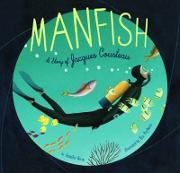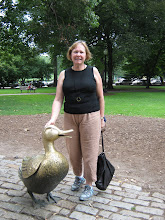The ocean drives global systems that make the Earth habitable for humankind. Our rainwater, drinking water, weather, climate, coastlines, much of our food, and even the oxygen in the air we breathe, are all ultimately provided and regulated by the sea.
Oceans are our planet’s life support as they provide water, food and help regulate the weather. Oceans also provide jobs for more than 3 billion people who depend on marine biodiversity for their livelihood. If we do not stop polluting our oceans, there will be severe problems that affect every person and living creature on the planet.

This goal continues on well from the previous goal about climate because a lot of the climate action plans involve the oceans as well. The students at school know about rubbish in the oceans especially Kindergarten who do a unit of inquiry that looks at life in the sea. When they read about animals that live there or watch film clips about them they are often confronted by the threats things like, plastic, nets and oil are for these creatures. I thought if I started with the new book Saving Seal by Diana Jackson Hill and Craig Smith, the book would be new to everyone and therefore easy to talk about and relate back to other books the students already know that address the problem of plastic in the sea.
Here's the blurb:
Seal has made his home in the waters of a coastal village, but he often finds himself trapped and ensnared in the plastic rubbish filling the Bay. Fortunately, he is rescued by Lizzie and Grandpa Dave.
Lizzie and Grandpa Dave are motivated to do something about cleaning up their Bay and saving the marine life who are being threatened more and more by the rubbish found in the Bay and on their beaches. They encourage the towns people to join them in their fight against plastic pollution devastating their beaches and harming marine life.
Where to next? You could choose another book about plastic in the ocean and compare and contrast the two books. Alba The One Hundred Year Old Fish by Lara Hawthorne would be a good one.
Here's the blurb:
Alba the fish has spent her entire life collecting precious objects that drift down to the ocean floor. From delicate shells to brightly coloured coral, each year on her birthday she gathers one more precious item. But over the years, Alba notices her collection is losing its sparkle and that the world is changing. What are these bits of plastic and metal? As the coral reef fades, Alba decides to leave her home behind. Can an old fish teach the world how to bring colour back to the ocean? The One-Hundred-Year-Old Fish gently highlights the issue of pollution.
If you have older students, perhaps look at someone who works below the water by reading a biography about them. You could read about Jacques Cousteau, Sylvia Earle, Eugenie Clark or Curtis Ebbesmeyer. Here are some of the biographies, but there are others too.

 Dr Curtis Ebbesmeyer is the scientist who monitors the watery fate of human-made cargo that has spilled into the ocean. Remember all those stories about rubber ducks that have been spilled overboard off freighters and where they ended up.
Dr Curtis Ebbesmeyer is the scientist who monitors the watery fate of human-made cargo that has spilled into the ocean. Remember all those stories about rubber ducks that have been spilled overboard off freighters and where they ended up.Ask • Can you think of ways we could spread the message about how important marine life is and why we need to protect it?
• We read...
• This story made me want to ...






No comments:
Post a Comment